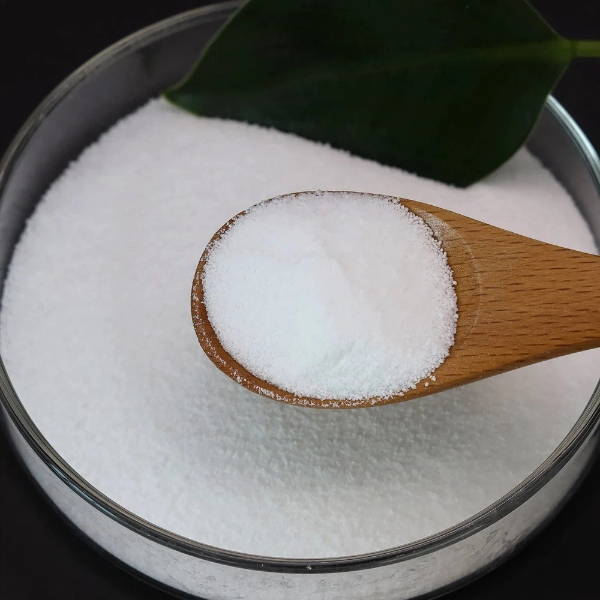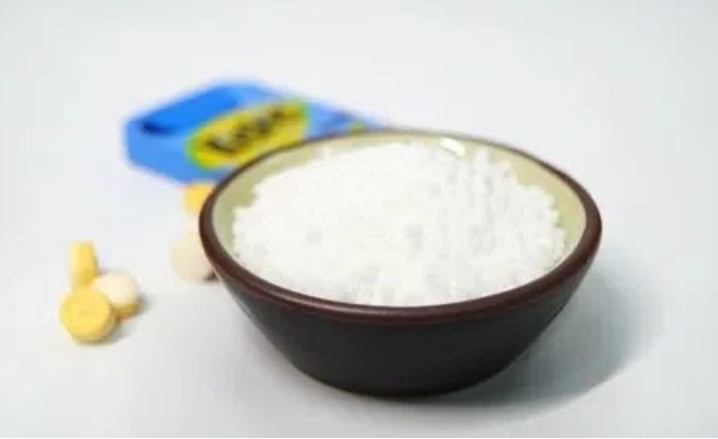Views: 222 Author: Sara Publish Time: 2025-10-23 Origin: Site








Content Menu
● Leading Isomaltulose Manufacturers in Portugal
>> Production Facilities and Quality Standards
● Applications of Isomaltulose
● Advantages of Choosing Portuguese Isomaltulose Suppliers
● Market Dynamics and Challenges
● FAQ
>> 1. What is Isomaltulose, and why is it preferred over regular sugar?
>> 2. Are there established Isomaltulose producers in Portugal?
>> 3. What industries benefit most from Isomaltulose?
>> 4. How do Portuguese suppliers support product customization?
>> 5. What are the main challenges limiting Isomaltulose's wider adoption?
In recent years, Isomaltulose has gained significant attention as a natural, low-glycemic sugar alternative with applications across food, beverage, and nutrition industries. Portuguese manufacturers and suppliers of Isomaltulose stand out for their quality offerings and innovation, catering to both domestic and international markets. This article explores the top Isomaltulose manufacturers and suppliers in Portugal, highlighting their product ranges, technological capabilities, and industry applications. It features detailed explanations and application examples to provide a comprehensive understanding.

Isomaltulose, also known as Palatinose™, is a naturally sourced carbohydrate derived from beet sugar. It offers a slow digestion rate and low glycemic index, providing a steady and prolonged energy release without causing a rapid spike in blood glucose levels. This property makes it ideal for sports nutrition, special medical nutrition, confectionery, beverages, and many other applications. Moreover, Isomaltulose is tooth-friendly and non-cariogenic, meaning it does not promote tooth decay. It is water soluble and available in various particle sizes to suit different production needs, from powders to tablets.
Several prominent companies in Portugal specialize in Isomaltulose production, distinguished by their quality assurance, food safety guarantees, and product versatility:
- Ferrer Alimentacion: A key player supplying various Isomaltulose grades suited for applications such as sports nutrition, clinical nutrition, confectionery, and beverages. Their products meet stringent European food safety standards and come with technical support for product selection and formulation guidance. Ferrer Alimentacion emphasizes quality, providing blended sweetener development and OEM/ODM services that support international brands.
- Other emerging manufacturers in Portugal contribute to innovation by combining Isomaltulose with functional polyols and dietary fibers, offering blended sweeteners tailored for health-focused products. These companies focus on sustainable processes and advanced enzymatic production techniques to ensure purity and consistent quality.
Portuguese manufacturers employ advanced enzymatic production processes, including sucrose isomerase enzymes, to convert sucrose into Isomaltulose efficiently. Recent technological advances like enzyme immobilization are being explored to improve manufacturing efficiency and cost-effectiveness. The facilities comply with hygiene, safety, and environmental standards while maintaining certifications such as ISO and HACCP. Many manufacturers actively participate in research collaborations and apply artificial intelligence for procurement, processing, and distribution management, further enhancing product quality and supply chain resilience.
Isomaltulose's unique slow energy release and low glycemic index (GI=32) translate into wide-ranging applications:
- Sports Nutrition and Supplements: Provides sustained energy release that benefits endurance athletes and active consumers by maintaining balanced blood glucose levels during prolonged physical activity.
- Clinical and Special Nutrition: Used in products designed for seniors, infants, diabetics, and gestational diabetes diets. The slow sugar release supports metabolic health and provides tooth-friendly alternatives for vulnerable populations.
- Confectionery and Bakery Products: Enables the creation of low-glycemic sweets, chocolates, pastries, and biscuits. Its non-cariogenic property makes it appealing for healthier confectionery lines.
- Beverages and Dairy Products: Incorporated into functional beverages, energy drinks, yogurts, and other dairy items as a healthier sweetening option that does not cause rapid sugar spikes.
- Functional Food and Supplements: Added to breakfast cereals, bars, and supplements as a clean-label, natural sweetener supporting holistic health and wellness trends.
- High-quality sourcing from sugar beet with sustainable and environmentally friendly manufacturing processes.
- Strict compliance with European food safety and quality certification systems ensuring product purity and safety.
- Offering customization options for blended sweetener formulations, tablet production, and other OEM/ODM services.
- Comprehensive technical support, including formulation advice, application testing, and regulatory guidance.
- Competitive pricing coupled with reliable supply chains aimed at European and global markets.
- Engagement in continuous R&D to develop new applications, improve enzyme efficiency, and innovate sustainable packaging solutions.
- Active adaptation to consumer trends like organic, vegan, bio-based, clean-label, and sustainable products.

Globally, the Isomaltulose market was valued at over USD 1.2 billion in 2024, with projections to grow at a compound annual growth rate (CAGR) of around 5.15% through 2032. In Europe, including Portugal, demand is driven by consumer awareness regarding health risks associated with high-glycemic sugars and a desire for clean-label, natural ingredients. The health-conscious European consumer base, and increasingly stringent sugar reduction regulations, especially in countries like Germany and the UK, are accelerating this growth.
However, Isomaltulose's broader adoption is somewhat limited by its higher price compared to conventional sugars and many alternative sweeteners. The complex enzymatic production and purification processes increase manufacturing costs, which reflect in pricing. This restricts its use primarily to premium and specialized product segments. Market players are focusing on scaling up production, enhancing enzyme technologies, and consolidating supply chains to improve cost-effectiveness and accessibility.
Major global players collaborate to advance production technologies; for example, developments in enzyme immobilization and reuse promise to raise efficiency and reduce costs. Portuguese manufacturers, often integrated into European supply networks, benefit from access to advanced R&D and regulatory environments that support innovation and safety in functional carbohydrate products.
Portugal is home to a dynamic group of Isomaltulose manufacturers and suppliers, recognized for their commitment to quality, innovation, and regulatory compliance. With specialized production techniques, a focus on sustainable and health-driven product portfolios, and strong technical support, Portuguese companies like Ferrer Alimentacion lead the market in providing functional low-glycemic sweeteners to Europe and beyond. These suppliers enable food manufacturers to reformulate products for health-conscious consumers, meeting growing demand for natural sugar alternatives in sports nutrition, clinical diets, confectionery, and beverages. Despite cost challenges, continuous advancements in production and formulation technology suggest a promising growth trajectory for Isomaltulose in Portugal and global markets.

Isomaltulose is a naturally derived carbohydrate from beet sugar with a low glycemic index (GI=32) that releases energy slowly. It is tooth-friendly and suitable for people requiring steady blood sugar control, such as diabetics, athletes, and those focused on dental health, making it a preferred sugar alternative.
Yes, companies like Ferrer Alimentacion are recognized manufacturers in Portugal offering various Isomaltulose grades with quality certifications and OEM/ODM services tailored to the food, beverage, and pharmaceutical industries.
Isomaltulose has applications in sports nutrition, clinical and special nutrition, confectionery, beverages, dairy, breakfast cereals, and functional foods where low glycemic and tooth-friendly sweeteners are desired.
Portuguese suppliers provide blended sweetener development, tablet production, and formulation consultancy, helping customers adapt Isomaltulose to specific product requirements and regulatory standards, enhancing versatility and market reach.
The primary challenges include higher costs due to complex production and enzyme technology, along with price sensitivity among consumers and manufacturers, which limits its use mostly to premium health-focused product segments.
[1](https://www.databridgemarketresearch.com/reports/global-isomaltulose-market)
[2](https://www.researchandmarkets.com/report/isomaltulose-market)
[3](https://ferreralimentacion.com/en/producto/isomaltulose/)
[4](https://www.researchandmarkets.com/reports/5800939/isomaltulose-market-report-industry-size)
[5](https://www.6wresearch.com/industry-report/spain-isomaltulose-palatinose-products-market)
[6](https://www.linkedin.com/pulse/isomaltulose-market-size-2026-investment-strategy-gsnlf)
[7](https://www.htfmarketreport.com/reports/3622260-isomaltulose-market)
[8](https://www.linkedin.com/pulse/top-isomaltulose-companies-how-compare-oytrc)
[9](https://www.6wresearch.com/industry-report/mali-isomaltulose-palatinose-products-market)
[10](https://www.htfmarketreport.com/reports/2705053-global-isomaltulose-market-6)
